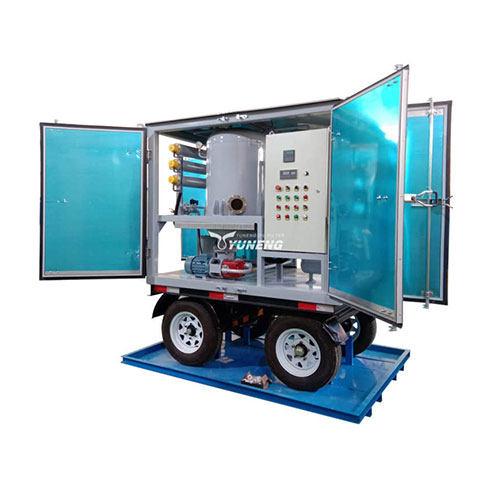Can High Vacuum Technology Extend the Life of Transformer Oil Indefinitely?

Transformer oil, the silent guardian of our electrical grid, plays a vital role in ensuring efficient power transmission. But like all guardians, transformer oil needs proper care to function optimally. High vacuum technology has emerged as a promising tool for extending transformer oil life, but can it truly make it last indefinitely? Let's delve into the world of transformer oil and explore the potential and limitations of high vacuum technology.
Understanding Transformer Oil and its Aging
Nestled within transformers, transformer oil serves two crucial functions:
Cooling: It absorbs heat generated by the transformer, preventing overheating and malfunctions.
Insulation: It acts as an electrical insulator, preventing short circuits within the transformer.
However, over time, transformer oil degrades due to several factors:
Oxidation: Exposure to air leads to the formation of harmful byproducts that can compromise the oil's insulating properties.
Moisture Ingress: Water contamination can weaken the oil's insulation strength and accelerate its degradation.
Contamination: Solid impurities like dirt or metal particles can cause electrical breakdowns within the transformer.
High Vacuum Technology: A Powerful Ally
High vacuum technology offers a compelling solution for extending transformer oil life:
Degasification: High vacuum systems efficiently remove dissolved gases and moisture from the oil. This reduces oxidation and prevents the formation of harmful byproducts.
Dehydration: By creating a near-vacuum environment, high vacuum technology can effectively remove water contamination from the oil.
Improved Filtration: Operating alongside high vacuum, advanced filtration techniques remove solid impurities, further protecting the oil's insulating properties.
The Promise and Limitations of Indefinite Life
While high vacuum technology offers significant benefits, there are limitations to consider:
Cumulative Degradation: Despite high vacuum treatment, some degree of degradation within the oil molecules remains inevitable.
Paper Insulation Breakdown: Cellulose paper used for transformer insulation can degrade over time, limiting the overall lifespan of the transformer itself.
Cost Considerations: High vacuum treatment can be a significant upfront investment, and the cost-effectiveness needs to be evaluated over the extended lifespan of the transformer.
The Road to a Sustainable Grid
While indefinite life may not be achievable, high vacuum technology offers a significant leap forward:
Extended Oil Life: By effectively removing contaminants and moisture, high vacuum treatment can significantly extend the lifespan of transformer oil, reducing the need for frequent oil replacements.
Reduced Environmental Impact: Minimizing oil replacements lowers the environmental footprint associated with oil production and disposal.
Enhanced Grid Reliability: Healthy transformer oil ensures reliable power transmission, minimizing the risk of outages and disruptions.
The Future of Transformer Oil Management
High vacuum technology represents a major step towards a more sustainable and efficient power grid. As research and development continue, we can expect to see:
Advanced Purification Techniques: Innovations in filtration and contaminant removal techniques could further extend transformer oil life.
Combined Technologies: Integration of high vacuum with other oil rejuvenation techniques might offer even more comprehensive oil restoration.
Conclusion
High vacuum technology cannot guarantee indefinite life for transformer oil, but it's a powerful tool for significantly extending its lifespan. By promoting oil health, high vacuum technology strengthens the silent guardians of the grid, contributing to a more reliable, sustainable, and environmentally responsible electrical future.
- Art
- Causes
- Crafts
- Dance
- Drinks
- Film
- Fitness
- Food
- Spellen
- Gardening
- Health
- Home
- Literature
- Music
- Networking
- Other
- Party
- Religion
- Shopping
- Sports
- Theater
- Wellness
